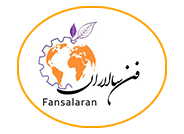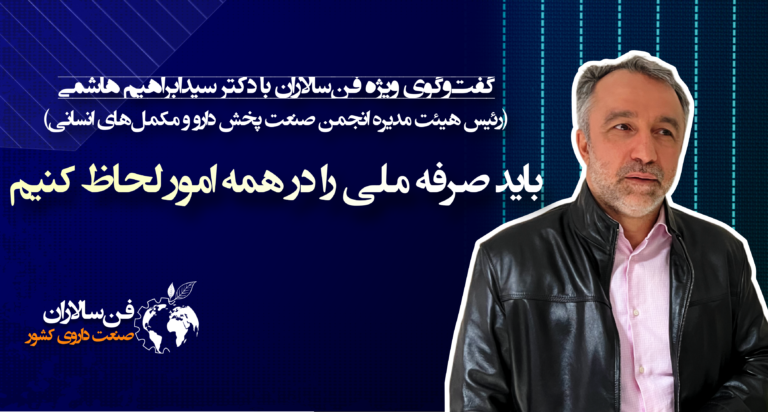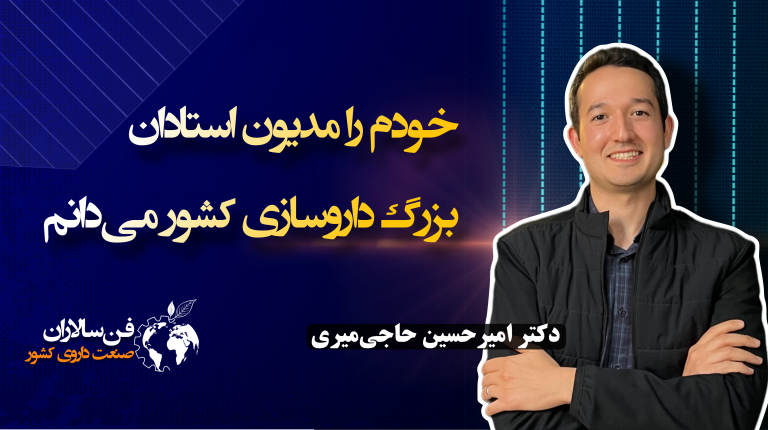We Must Consider National Efficiency in All Matters
An exclusive interview with Dr. Seyed Ebrahim Hashemi, Chairman of the Board of Directors, Association of Pharmaceutical and Human Supplement Distribution Industry (Iran)
Editor’s Note:
I had seen Dr. Hashemi once or twice at various events. I admired his dedication and insight and wished to engage in a meaningful conversation with a man who truly understands the values of life and responsibility—someone who could be a role model not just for his community, but perhaps far beyond.
When the opportunity finally came to meet him, our respect only grew deeper. While there are many competent individuals in the country’s pharmaceutical sector, it is rare to find someone who consistently proves himself through his presence, whose words carry weight, and whose character is defined by the responsibility he upholds.
One can choose the comfort of shadows, indulging in worldly pleasures, or barter life for empty embellishments—but not him. I came to realize that Dr. Hashemi perceives the value of a meaningful life like a celebrated artist, a rare quality that elevates my filmmaker’s mind to the realm of greatness.
In this headline-rich interview, we present his direct words without our questions interspersed.
Editor-in-Chief
Dr. Seyed Ebrahim Hashemi:
I was born in Sari and entered Tehran University in 1987. I was always a top student, full of ambition and high ideals. But just three weeks before the university entrance exam, something terrible happened—my beloved mother was diagnosed with cancer.
As the youngest in the family, I was very attached to her. I barely made it to the exam! I arrived late and forgot my pen… a twist of fate.
After the test, I told myself I’d try again next year because I had mismarked two subjects. But when the results came, I found I had qualified for many programs—medicine, dentistry, and more. A friend insisted I include pharmacy at Tehran University as my last option. I did—despite my reluctance—and was accepted into pharmacy. Looking back, I’m very happy I pursued this field.
In addressing societal and healthcare issues, we often focus on fixing symptoms rather than root causes. And even then, our prioritization is not structured in a way that helps the healthcare system.
Take the issue of budgeting—a hot topic. For years, healthcare has suffered the most from flawed budgeting.
Let me be clear: the majority of healthcare subsidies are paid from the pockets of healthcare workers.
Why do nurses leave the country? Because they are underpaid. Why? Because the healthcare budget is poorly allocated.
Why do physicians or pharmacists consider emigration? Because we think it’s right to suppress healthcare tariffs and service fees. That’s not a sustainable model.
Before the revolution, I remember going to a barber who charged 10 rials for a haircut. At the same time, a general physician’s visit was 50 rials. Today, a haircut costs 300,000 tomans, and a GP visit is 100,000 tomans. How can private healthcare work with such tariffs? (Let’s not even get started on the public system—its issues are far more complex.)
In the public sector, a service may cost 150,000 tomans, yet the tariff is set at 30,000. And 60% of that goes to the physician. So what happens? Doctors and hospitals are forced to cut from medication costs or consider leaving the country altogether.
Are you aware that pharmaceutical distribution companies are owed over 20 trillion tomans by university hospitals? And the government itself owes another 20 trillion! That’s 40 trillion in total.
Why? Much of this stems from the flawed “Daroyar” plan, which appears to be a revenue-generating scheme for the government. Previously, foreign currency was provided at 4,200 tomans per dollar. Now it’s at 28,500 tomans. Do the math on that margin.
In 2023, nearly €3.5 billion was allocated. Multiply that by the currency difference, and you’ll see the government made over 500 trillion tomans—just from the currency gap. Yet, only 340 trillion was spent on medicine. So where did the rest go?
It was transferred to the treasury and spent on wheat and flour subsidies. So yes, funds intended for healthcare were used elsewhere.
And what’s the result? Hospitals and pharmacies owe distributors, who in turn owe manufacturers. Most manufacturers are now burdened with heavy bank debts, and distributors are drowning in bounced checks.
Would you believe that in the past five years, we had almost no bounced checks? But now—look at the chaos.
Today, the primary problem in our country’s pharmaceutical sector is lack of liquidity, period.
This liquidity problem is entirely in rial. Even if dollars are allocated, we don’t have the rials to access them.
Next issue: competition is blocked in our system. Imports have been practically eliminated—unless a drug shortage opens a small window (which is another story entirely).
It’s shocking, but we are now repeating the same disastrous automotive policies in the pharmaceutical sector—blind protectionism under the banner of local production, without real competition. This serves the interests of a few, not the public.
Let me be clear: Anyone in any industry who insists on keeping the currency artificially low “for the benefit of the people” is thinking only of their own benefit. The public is just an excuse for rent-seeking.
Prices must be realistic. Funds must be paid on time. That’s the only way forward. Until pricing reflects true costs and funds reach hospitals appropriately, things will only get worse.
Even if you brought in Bill Gates or Elon Musk, without funding, they wouldn’t be able to do anything. No doubt about it.
Imagine you’re running a hospital. The first money you receive goes to paying staff. The second, to feeding patients. The third—if there’s anything left—goes to buying medicine. And if not? The old line returns: “Go buy your medicine from outside and bring it in.”
That’s the reality.






